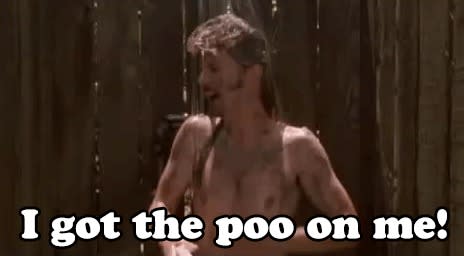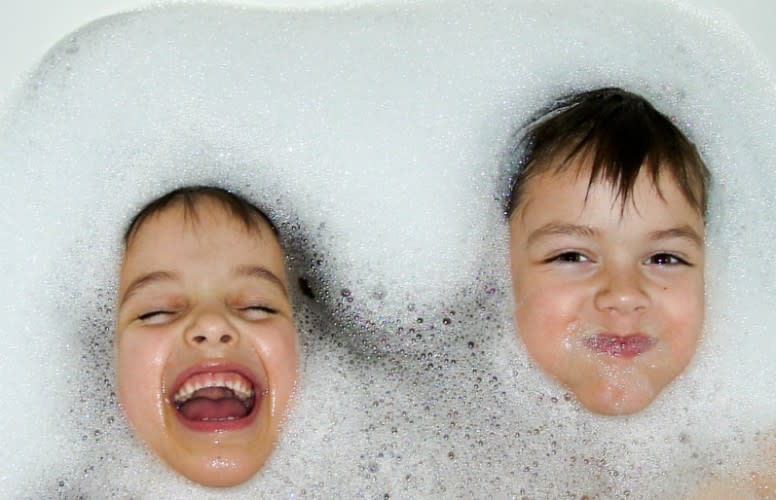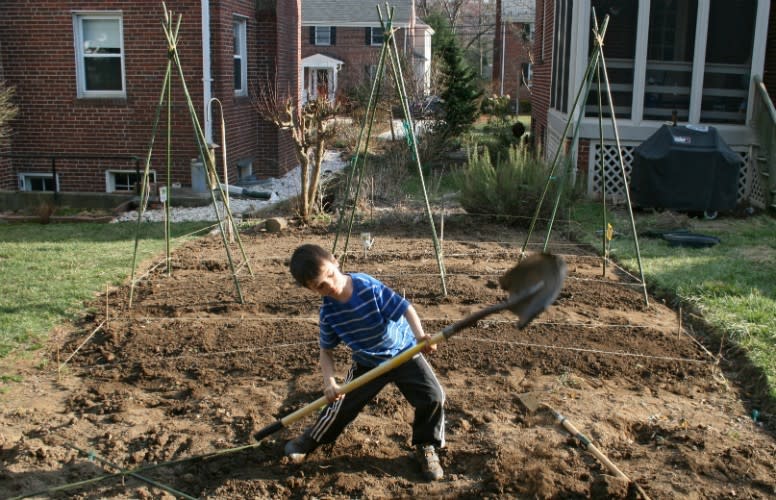What a Guy Who Doesn’t Shower Can Teach Your Kid About Cleanliness

This article originally appeared it Fatherly:
Since the 1980s scientists have put forth the “hygiene hypothesis,” that exposure to nature is priming your child’s immune system. Today, the microbiome (those bodily colonies of good bacteria that prevent you from being overrun with bad bacteria) is getting some serious attention, and the consensus for parents seems to be: back away from the Purell.
David Whitlock is the chief scientist for AOBiome, an M.I.T.-educated chemical engineer, andthat guy who hasn’t showered in more than a decade. He helped develop a spray called Mother Dirt, which you just spritz on yourself after cleansing (or not) to replenish the good flora on your body. Think of it as the opposite of Axe body spray. “A lot of what keeps the nasty stuff away is having the good and friendly stuff on your skin,” says Whitlock, whose smell honestly doesn’t have co-workers diving under their desks.
That doesn’t mean Whitlock thinks you should stop bathing your kid … or does it?

Your Body Is A (Bacterial) Wonderland
Right now you’re worried about following Whitlock’s example and ending up with a kid that smells like a gym sock. He understands your skepticism. But, if you’re constantly scrubbing away all the microorganisms on the skin, Lil’ Stinky’s problem may become worse. As Whitlock points out, if you think of your body like a bacterial rainforest, when you slash and burn the first things to come back aren’t the big healthy trees, but crappy little weeds. “Trying to micromanage [your microbiome] is a fool’s errand,” he says. “You need to let it manage itself.”
Bath Time
Evaluate how dirty your kids really are. If they come back from soccer practice looking like a Tide commercial, you should probably bring out the hose. But if your kids spend the majority of their day wearing clothes inside a climate-controlled, air-conditioned room, they probably don’t need a scrub down.
Whitlock says that tap water alone will get you pretty clean. “Plain water removes a lot. When people lived in the wild they bathed a few times a year,” says Whitlock. “You really don’t need all this soap and detergent and different things. Playing in water is enough.” Mr. Bubbles, you’ve been put on notice.

Hand Washing
Shortest answer: yes. But wash them less, and without antibacterial products (unless you’re a doctor). “I wash my hands before food prep and after using the toilet — and if they get really dirty,” says Whitlock. “The only reason you need to wash your hands is to remove toxins or pathogens. Bacteria that aren’t pathogens are of no concern. For dirty that isn’t toxic, it’s only an aesthetic concern. And I’m not that worried about aesthetics these days.” Really? The guy who hasn’t bathed in 10 years isn’t worried about aesthetics?
Dishwasher: Yay Or Nay?
Studies in Sweden alluded to the fact that kids in homes with dishwashers have more allergies. “I don’t think the problem is the dishwasher,” says Whitlock. “It’s their exposure to disinfectants in dishwashing liquid.” Although he also adds that he doesn’t have a dishwasher. And he mostly eats sandwiches.
The time you absolutely have to be clean is when you’re washing baby bottles. “Formula and bottles have to be sterile. That’s very important. Formula is a rich medium and bacteria can grow quickly. Even bacteria that are benign can cause problems at high levels.”
Not All Dirt Is Equal
City kids can’t just go to the local ballfield, rub their face in the dirt, and expect to be healthier. “The dirt in cities isn’t pristine, natural, abundant dirt. It’s not an ecosystem like on a farm. Looking for biodiversity you don’t look in the cracks of the sidewalks,” says Whitlock. “We heard about a few parents who live in cities and want to get their kids to play outdoors. They started testing the dirt in their backyard, and the scary thing is that there’s a lot of lead and PCBs in dirt. It isn’t going to transfer in the skin, you’re going to need to ingest it, but it’s something to be mindful of.”

Old MacDonald Had A Rich Microbiome
You could assume that farm kids have a more diverse microbiome, and you’d be right. But your local petting zoo isn’t the place to start exposing kids to good bacteria. “In the petting zoo it’s probably humans that are the source for pathogens, not the animals.” You hear that, your kid is dirtier than a billy goat! The main reason you have to wash your hands after feeding the little lambs is mostly to accommodate people who are immunocompromised, where infections can happen at lower doses.
What About The 5-Second Rule?
David Whitlock has an M.S. from M.I.T., but he’s also a dad. So what does he do when that pacifier used to drop on the floor. “For my first child, when the pacifier dropped on the floor I cleaned it off. The second child, no I didn’t.” Fair enough, because who really believe those pacifier wipes are worth it? But what about food? “If I dropped food on the floor I’ll still eat it. It’s not a 5-second rule, because that’s been shown not to be correct. But if it fell in the subway — it’s gone.”
(Top Photo: Corbis Images)
More stories from Fatherly:
Neil deGrasse Tyson Has Some Advice For Any Parent Who’s Worried About Their Kid’s Potential
This Infographic Shows How You’re Most Likely Going To Die
I Didn’t Make My Kids Say ‘Thank You,’ And 3 Other Reasons They Turned Out So Well

